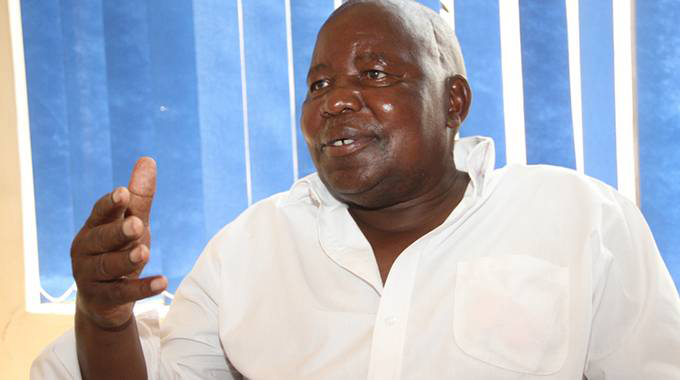Access to water, toilets still elusive for many

Tajudeen Oyewale
Correspondent
As we jointly commemorate the Global Handwashing Day and World Toilet Day this year, UNICEF recognises the progress that has been made in Zimbabwe. But we also acknowledge the challenges with regards to universal access to basic hygiene and sanitation.
When a child drinks water contaminated by faecal waste in a community where there are an inadequate number of toilets or when children cannot wash their hands before eating lunch at home / school, they can easily fall ill. Every day, over 700 children, under five years old, around the world die from diarrhoea associated with unsafe water, sanitation and poor hygiene practices.
This global commemoration therefore offers an opportunity for all stakeholders — Government, development partners and civil society, the private sector, communities and children — to raise awareness and increase commitment on handwashing with soap and water; and the use of dignified toilet at home, at school, and in health facilities and public places.
Handwashing with soap and water has always been a lifesaving investment. It’s one of the simplest and most cost-effective ways to keep ourselves, and our families and communities, healthy and disease-free.
The Covid-19 pandemic has further brought focus on the importance of hand hygiene as a vital first line of defence against the Covid-19 virus and many other deadly diseases.
The pandemic has also shown the challenges in supplies and behaviour change required to scale up handwashing.
For example, one-third of households in Zimbabwe do not have a handwashing facility with soap and water and nearly one-quarter still have no toilet at home.
In addition, only 58% of schools have handwashing facilities and less than two-thirds of health care facilities have adequate hand hygiene facilities.
Investment in hygiene and sanitation is a wise investment in productivity and health.
Available evidence from the World Bank, UNICEF and others indicates that for every US$1 invested in basic sanitation, up to US$5 is returned in medical costs savings and increased productivity.
This is therefore an opportune time to increase investment in hand hygiene and sanitation as one of the key levers towards achieving the set goals in the National Development Strategy (NDS) 1 of the Government of Zimbabwe.
To achieve this objective, all stakeholders have to build upon the lessons from the Covid-19 response and commit to ensuring hand hygiene and sanitation facilities are universal and available in every household, school, health care facility and community well beyond the pandemic.
This calls for a paradigm shift in resource allocation, partnership and community mobilisation.
While UNICEF welcomes the latest establishment of the Emergency National WASH Rehabilitation Program by the Government to bring focus on achieving rapid water and sanitation improvements across the country, efforts toward the finalization of National Sanitaiton and Hygiene Policy is needed.
In addition, improve coordination amongst the different Ministries responsible for Water, Finance, Local Government, Health, Education, Climate Change, Housing and Women’s Affairs is required.
Beyond the policy action, coordinated efforts are required to strengthen market systems to improve the availability and delivery of affordable products and infrastructure for hygiene and sanitation structure and promote innovation, including greater private sector participation.
At the community level, scale up of hygiene promotion and behaviour change communication to sustain hand washing and appropriate use of sanitation facilities, including toilets, is required.
UNICEF will continue to engage with the different ministries in Government responsible for water, hygiene and sanitation, and partners at national, provincial and district levels to foster a coordinated approach towards achieving Zimbabwe’s national goal of ensuring at least 77% of people have sanitation by 2025, and to achieve an open defecation free society with 100% of households having a toilet and handwashing facility.
#ForEveryChild, access to water, sanitation and hygiene.
l Dr Tajudeen Oyewale is UNICEF Representative in Zimbabwe










Comments